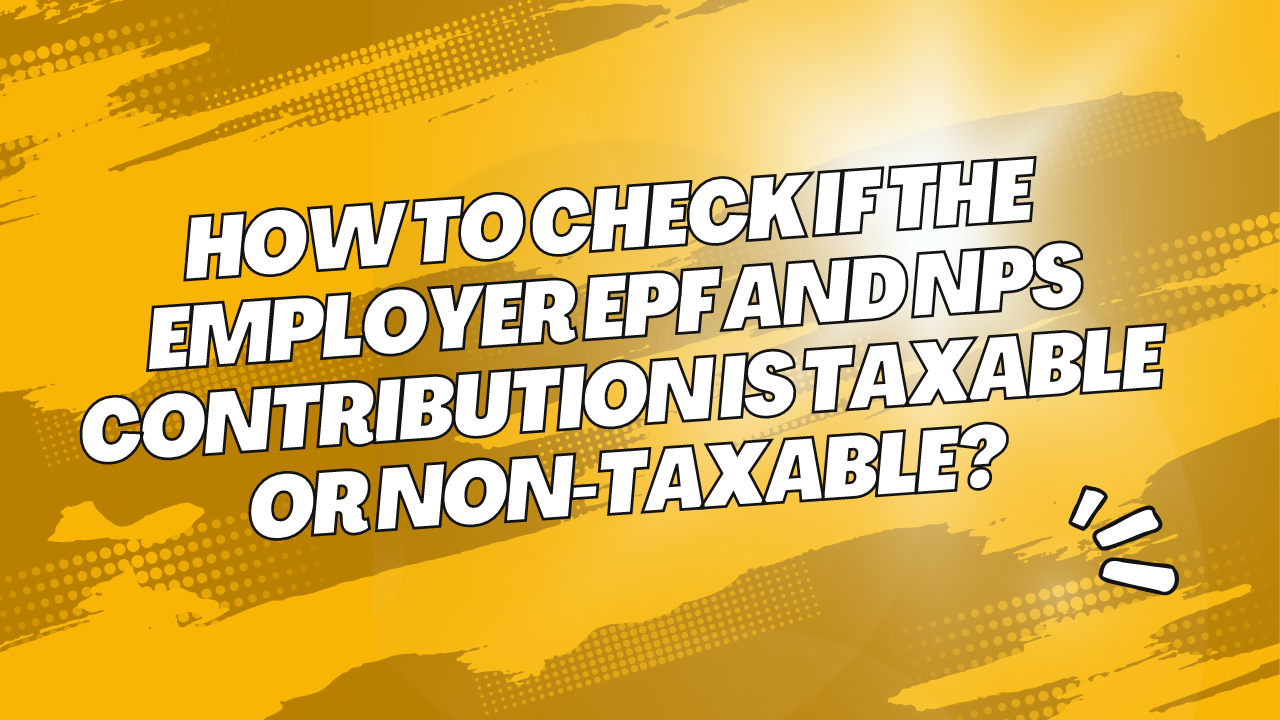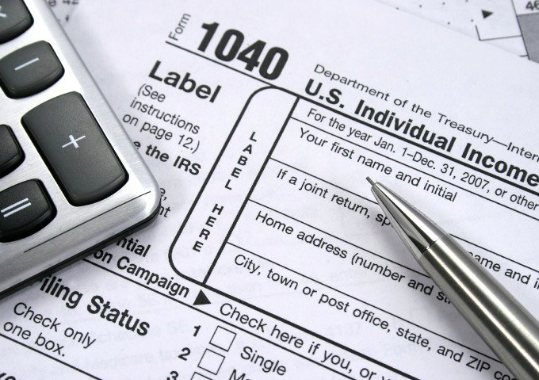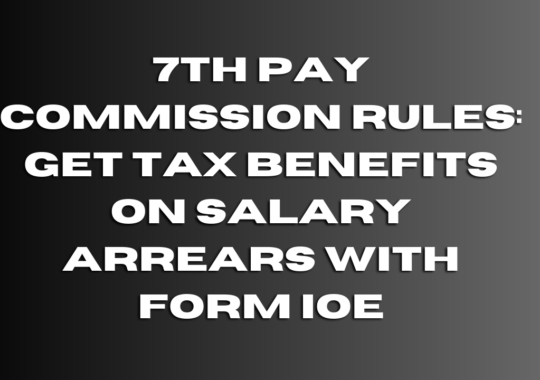The tax treatment of employer contributions to the Employee Provident Fund (EPF) and the National Pension System (NPS) will depend on various factors, including the type of contribution, the amount of the contribution, and the individual’s tax bracket.
To determine whether employer EPF and NPS contributions are taxable or non-taxable, individuals should review their Form 16, which is issued by their employer and provides a summary of their income and taxes paid during the year. Alternatively, individuals can consult with a tax professional or refer to the relevant tax laws and regulations for guidance.
Introduction
Employee Provident Fund (EPF) and National Pension System (NPS) are important retirement savings schemes in India. Both employers and employees can contribute to these schemes, with contributions being made on a regular basis throughout an individual’s working life. One question that often arises is whether employer contributions to EPF and NPS are taxable or non-taxable. In this article, we will discuss the factors that affect the tax treatment of these contributions and provide guidance on how individuals can determine whether their employer contributions are taxable or non-taxable.
Understanding EPF and NPS contributions
Employee Provident Fund (EPF) is a government-backed retirement savings scheme in India that is available to employees working in the organized sector. Under this scheme, both the employer and the employee contribute a certain percentage of the employee’s salary towards the EPF account, which is managed by the Employees’ Provident Fund Organization (EPFO). The contributions made by the employer and the employee are invested in a mix of debt and equity instruments, with the goal of providing long-term retirement savings for employees.
The National Pension System (NPS) is a voluntary pension scheme that is available to all Indian citizens. It is regulated by the Pension Fund Regulatory and Development Authority (PFRDA) and offers both a defined benefit and a defined contribution option. Under the defined contribution option, both the employer and the employee can contribute to the employee’s NPS account. The contributions made by the employer and the employee are invested in a mix of equity, debt, and government securities, with the goal of providing long-term retirement savings for individuals.
In both EPF and NPS, the contributions made by the employer and the employee are important sources of retirement savings, and the tax treatment of these contributions can impact an individual’s overall retirement savings strategy.
Tax treatment of EPF and NPS contributions
The tax treatment of EPF and NPS contributions depends on various factors, including the type of contribution, the amount of the contribution, and the individual’s tax bracket.
For EPF, the contributions made by the employer and the employee are eligible for tax deductions under Section 80C of the Income Tax Act. However, there is a limit to the amount that can be deducted, which is currently set at Rs. 1.5 lakh per financial year. Additionally, if an employee withdraws their EPF balance before completing five years of service, the withdrawn amount is subject to tax.
For NPS, the contributions made by the employer and the employee are also eligible for tax deductions under Section 80C of the Income Tax Act. However, there is an additional deduction available for contributions made by the employer under Section 80CCD(2). The maximum deduction available under this section is 10% of the employee’s salary, subject to a maximum of Rs. 7.5 lakh per financial year.
Factors affecting tax treatment
Several factors can affect the tax treatment of employer EPF and NPS contributions. Some of these factors include:
- Type of contribution: In EPF, both the employer and employee make contributions, while in NPS, the employer and employee can both contribute, but the employer’s contribution is optional. The tax treatment of the employer contribution can vary depending on the type of contribution.
- Amount of contribution: The tax treatment of EPF and NPS contributions depends on the amount contributed. There are limits on the amount that can be deducted under Section 80C and Section 80CCD(2), which can impact the tax treatment of contributions.
- Tax bracket: An individual’s tax bracket can impact the tax treatment of EPF and NPS contributions. For example, if an individual is in a lower tax bracket, the tax benefits of these contributions may be more significant than for someone in a higher tax bracket.
- Withdrawal rules: The tax treatment of EPF and NPS contributions also depends on the rules governing withdrawals. If an individual withdraws their EPF or NPS balance before a certain period, the withdrawn amount may be subject to tax.
Overall, the tax treatment of EPF and NPS contributions can be complex, and individuals should carefully consider these factors when planning their retirement savings strategy.
Consulting with a tax professional
If you are unsure about any aspect of your Form 16 or your income tax returns, it may be a good idea to consult with a tax professional. A tax professional can provide expert guidance and advice on a range of tax-related issues, including:
- Interpreting tax laws and regulations: Tax laws and regulations can be complex, and a tax professional can help you navigate the various rules and regulations that apply to your situation.
- Maximizing tax savings: A tax professional can help you identify potential tax savings opportunities, such as deductions and credits, that you may be eligible for.
- Avoiding mistakes and penalties: Filing your income tax returns incorrectly can result in penalties and other legal issues. A tax professional can help you avoid these issues by ensuring that your returns are accurate and complete.
- Planning for the future: A tax professional can help you develop a tax planning strategy that takes into account your current financial situation and your future goals.
Overall, consulting with a tax professional can be a smart investment for anyone who wants to ensure that their income tax returns are filed correctly and that they are taking advantage of all the tax-saving opportunities available to them.
Conclusion
Understanding the tax treatment of EPF and NPS contributions is essential for individuals to determine the taxability of these contributions. It is important to keep in mind the factors that affect the tax treatment of these contributions, such as the nature of the contribution, the timing of the contribution, and the total amount of the contribution. Reviewing Form 16 can also provide valuable information on the tax treatment of EPF and NPS contributions. Consulting with a tax professional can also provide expert guidance on tax laws and regulations and ensure that individuals are taking advantage of all the tax-saving opportunities available to them. By understanding the tax treatment of EPF and NPS contributions and complying with all the relevant rules and regulations, individuals can avoid penalties and other legal issues while maximizing their tax savings.
Also Read:
- Investment Taxation: Understanding Capital Gains, Dividends, and More
- The Impact Of Inflation On Investments
- The Future of Taxation: Trends, Challenges, and Opportunities Ahead
- Tax Planning Strategies for Small Business Owners and Individuals




